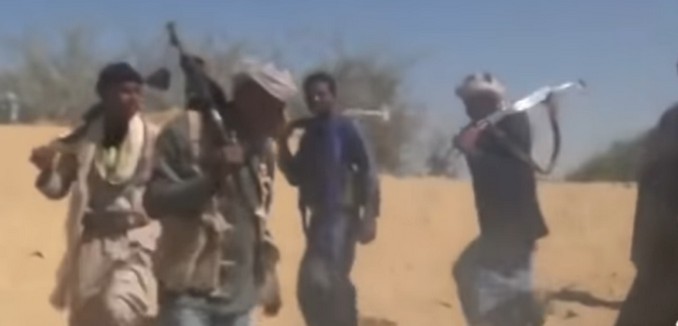The United Nations Security Council has been warned that Iranian-backed Houthi rebels have violated a UN-brokered ceasefire more than 200 times in less than two weeks, since it went into effect as part of the Stockholm peace negotiations, The National reported last week.
The two warring parties in Yemen’s civil war, the Houthi rebels, and Yemen’s internationally recognized government reached a fragile ceasefire agreement in December 2018, which includes the full withdrawal of Houthi troops from Hodeidah’s three ports and city.
However, representatives from the United Arab Emirates, Saudi Arabia and Yemen have warned the UN that the Iranian-backed group has shown no signs of preparing to abide by the truce. According to a detailed list presented to the Security Council on December 31, Houthi rebels killed 23 coalition forces and wounded 163 in 268 attacks between December 18 and December 30.
“The missile strikes in particular show that this vast number of violations cannot be attributed of individual ill-disciplined Houthi fighters, but that these actions are part of a deliberate strategy of provocation … designed to undermine the Stockholm Agreement,” their letter said.
The Houthi rebels have fought the internationally recognized government since 2015 in a war that has left the economy in ruins and 80 percent of the population dependent on humanitarian aid. Millions of Yemenis live under an occupation deemed illegal by the UN.
The letter also noted that Houthi rebels were using the ceasefire agreement to further entrench their forces in Hodeidah, citing the building of 51 new trenches around the city and the setup of 109 new barricades on city streets.
If the UN-brokered ceasefire fails, Yemen is at risk of a permanent “Hezbollahization” of the conflict. Iran has applied the “Hezbollah model” successfully across the region in a concerted effort to destabilize the Middle East. Examples are the Islamic Republic’s links to militias fighting in Syria and Iraq, Hezbollah in Lebanon and most recently the Houthis in Yemen.
From the conflict’s start, Houthi rebels have deployed tactics straight from the Hezbollah handbook. They embed themselves among Yemen’s impoverished civilian population, deliberately intimidating entire communities. Human shields have become a tragic feature of their strategy, as has the deployment of child soldiers.
Because the Houthis have adopted these tactics, Julie Lenarz, a Senior Fellow at The Israel Project, argued last month that “western powers should seriously consider designating the Houthis as a terrorist organisation.”
In October, UNICEF reported that more than 6,000 children have died or have been maimed in Yemen since the beginning of the war.
In January 2018, a UN panel determined that Iran was violating a UN Security Council arms embargo of the Houthis by shipping missile parts and other military equipment to the rebel group.
[Photo: R&U Videos / YouTube ]




